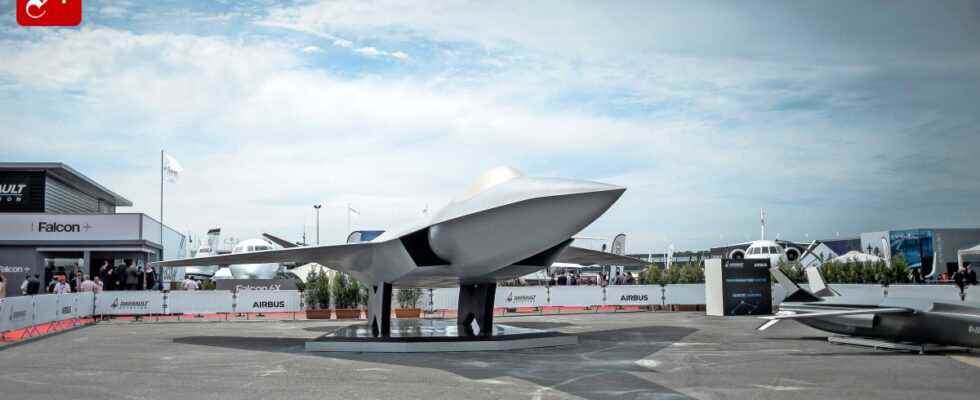At the Le Bourget fair in 2019: “Air combat system of the future” were demonstrated.
Image: AFP
While politicians have long been in agreement, the companies involved, Airbus and Dassault, remain divided. If the project is really to be implemented, Germany and France will have to put pressure on it.
DNegotiations on the Future Combat Air System (FCAS), a project designed to unify fighter jets, drone swarms and Combat Cloud, are stalling. While the political agreement between Germany, France and Spain has now been in place for more than a year, the industrial companies involved, Airbus (whose armaments division is based in Germany) and Dassault Aviation (which is based in Saint-Cloud near Paris), remain at odds. They still cannot agree on a division of labor in the development of the heart of the project, a so-called sixth-generation fighter jet. With total costs estimated at 100 billion euros, FCAS is the most expensive European armaments project of all time.
Éric Trappier, Chairman of the Board of Directors of Dassault, which is currently building the Rafale fighter jet, made it clear at his company’s semi-annual conference on Wednesday evening that the knot would have to be cut in the coming months – or FCAS would have failed. “Until the end of the year” he still gives the negotiations time, said Trappier. This should not be taken as an ultimatum. But you have already lost three years compared to the original schedule and cannot go on like this forever. “Our Plan A is FCAS,” said the Dassault boss. As with all industrial projects, however, we are of course working on a “Plan B”. Trappier didn’t want to go into detail about this.
